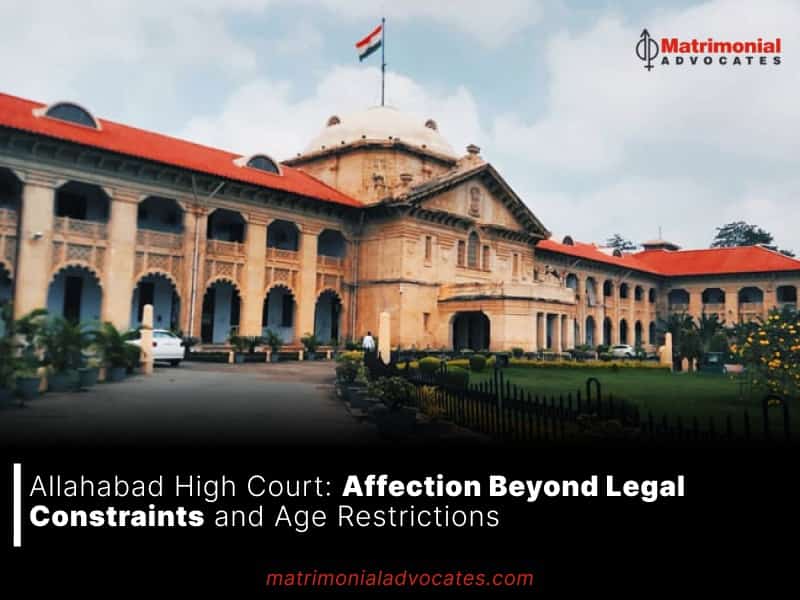
The Allahabad High Court deliberated that legitimate romantic affiliations between individuals, irrespective of their status as minors or nearing legal majority, endure impervious to stringent regulatory frameworks or governmental oversight.
In its adjudication, the Court acceded to petitions seeking exoneration from criminal prosecution for four petitioners who contracted matrimonial bonds without familial authorization.
The Court underscored its elevated judicial responsibility, transcending the mere application and interpretation of statutory provisions, necessitating a nuanced comprehension of the ramifications of its decisions on both individual litigants and the societal fabric.
This Court has time and again reached to the conclusion that true love between the individuals, one or both of who may be a minor or at the verge of majority, cannot be controlled through rigours of law or State action”, the Bench of Justice Rahul Chaturvedi observed.
Advocate Ashok Kumar Yadava and Advocate Aditya Singh appeared as legal representatives for the Applicant, while the Government Advocate acted in representation of the Respondent.
Four separate petitions were brought forth invoking Section 482 of the Criminal Procedure Code, 1973 (CrPC), each seeking the quashing of ongoing criminal proceedings against the respective petitioners. These petitions were consolidated for adjudication due to a shared legal nexus. The primary petition sought relief from a charge sheet, summoning order, and the entirety of criminal proceedings pertaining to allegations under sections 363, 366, and 376 of the Indian Penal Code, 1860 (IPC), as well as the Protection of Children from Sexual Offences Act, 2012 (POCSO Act). Despite the prosecutrix consenting to marriage with the petitioner and providing favorable statements, criminal charges were initiated. The Court acknowledged a previous dismissal of an application under Section 482 by the petitioner but entertained the argument that substantial developments warranted reconsideration. In a subsequent petition, relief was sought from a kidnapping case, asserting consensual relationships and lawful marriage, along with another case involving accusations of enticing a minor, who is now the petitioner’s spouse and the mother of their child, without evidence of coercion.
Throughout various instances, the Court observed instances where both male and female individuals engaged in consensual relationships prior to elopement, choosing marital union despite familial opposition. They solemnized their marriages either through religious institutions or Arya Samaj Temples, exercising their marital prerogatives despite facing harassment and criminal charges. However, their statements under Section 164 of the CrPC rendered the prosecutorial narrative untenable. Continuing criminal allegations against the males would only compound the distress experienced by the couples and therefore merit prompt dismissal.
A recurring theme among all cases was that the couples had attained the age of majority and entered into matrimony, yet parental interference disrupted their marital harmony. Instead of facilitating their union, parents instigated discord in their relationships, presenting a conflict between legal mandates and the couples’ desire for familial peace with their offspring.
Citing legal precedent, notably the case of Mafat Lal and Another v State of Rajasthan [Crl. Appeal No.592 of 2022], the Court reiterated that when parties consent to and maintain content marital lives with their minor offspring, legal constraints should not obstruct the recognition of their marriage. Additionally, referencing the case of Shafin Jahan v Asokan K.M., [(2018) 16 SCC 368], the Court underscored the right of individuals over 18 years to exercise autonomy in choosing their place of residence and cohabitant.
The Court observed that females who opted for marriage were either expectant or already had offspring. Emphasizing the need for a compassionate and pragmatic approach, the Bench acknowledged the significant duration of matrimony and the parental status of the couples. Subjecting them to criminal litigation at this juncture would be unjust to the accused and their innocent progeny, who bore no culpability in the alleged transgressions.





